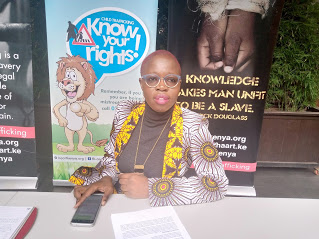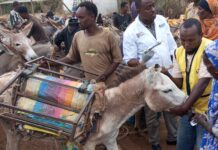By Lenah Bosibori
Nairobi, Kenya: Human trafficking is likely to increase in Kenya due to poverty and social ills linked to COVID-19 pandemic, said a report that was launched in Nairobi on Thursday. The report from awareness Against Human Trafficking (HAART) said that a global pandemic will not only have a huge impact on the victims of trafficked humans stranded in other countries but also on survivors.
“Due to this global pandemic, many people are losing their jobs and many businesses are failing, women and girls are now falling victims and are being exploited further through new ways such as online sexual exploitation,” said Radoslaw Malinowski the chief executive Officer HAART According to the report, Kenya was the native country of 82 percent of 586 human trafficking victims who gave gruesome account of their plight.
“Over 50 per cent of the survivors had built their lives, some had started businesses while others had been employed. The survivors have now reached out to us for support due to COVID 19 pandemic impact on their jobs and businesses,” said Malinowski.
Sophie Otiende, HAART board member and also a human trafficking survivor urged the government to intensify action on the vice. The HAART report, that was launched during the international day against Trafficking in Persons said that that 87 per of victims were trying to escape poverty while seven per cent came from broken families.

“86 per cent of the total victims were from Kenya and the rest from foreign countries, other foreign countries fell as victims were from Nepal, Uganda, Tanzania, DRC, Burundi, India, Rwanda, Ethiopia, Eritrea, Cameroon, South Sudan and Pakistan,” said the report.
Malinowski said that HAART Kenya will assist victims of human trafficking by raising 1.5 million shillings (about 15,000 US Dollars) to assist 110 survivors stranded in the other countries to return home.
“Many of the stranded victims come from Nairobi’s informal settlements, they were recruited due to poverty and right now they completely have nothing, they face difficulties in sustaining their lives,”said Malinowski.














